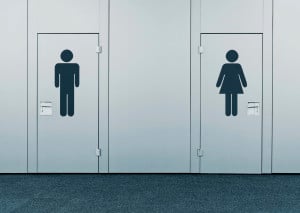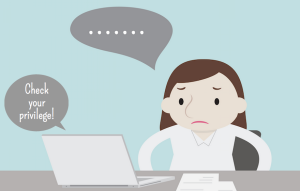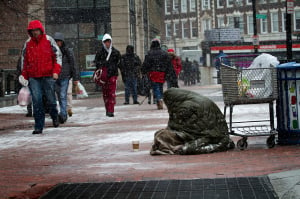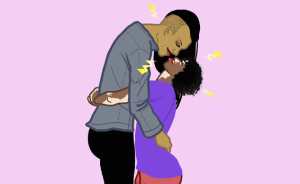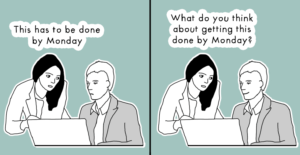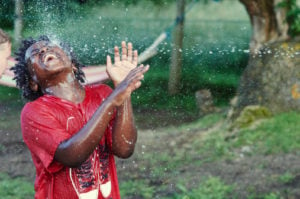(Content warning: sexual assault, rape, victim-blaming)
In February of 2014, actor Shia LaBeouf was whipped, stripped, and raped. By a woman.
Although he remained silent about the assault for a time, the young actor eventually told the world that he was raped by a female stranger during his Los Angeles art installation, #IAMSORRY. The installation ran during Valentine’s Day weekend and allowed art show attendees to sit silently in a private room with LaBeouf, who wore a paper bag over his head.
In an October 2014 interview with Dazed Digital magazine, LaBeouf told reporter Aimee Cliff that a woman whipped his legs for ten minutes, removed his clothes, and proceeded to rape him. After she fled from the scene, LaBeouf sat silently in shock, unsure of what to do or where to turn.
LaBeouf’s art show collaborators, British artist Luke Turner and Finnish artist Nastja Säde Rönkkö, claimed to have intervened to stop the assault, but the woman (whose identity remains unknown) has not been charged with any crime.
Sadly – but not unexpectedly – LaBeouf received disturbing backlash for speaking out.
Critics asked why he didn’t “fight her off” (thus attempting to discredit the deep loss of control that LaBeouf experienced when he was raped) and made jokes that he must have enjoyed it because “what man wouldn’t enjoy no-strings-attached sex?”
Others accused him of fabricating the rape for publicity or laughed off the feasibility of a man being raped by a woman entirely.
These taunts, accusations, and denials are exactly the type of victim-blaming that the feminist movement has been fighting against for decades in terms of the rape of marginalized people.
They deny the power and control that LaBeouf’s female assailant exerted over him because he is a man and therefore should have “fought back.”
Many people simply won’t admit to the real societal damage caused by women who sexually assault men.
The patriarchy has cemented society’s idea that “real” men are always craving sex and constantly, infallibly “ready to go.” Under these prescribed circumstances – where women hold the key to sex, which men are relentlessly seeking – men are expected to be grateful for any sexual advances thrown their way, wanted and unwanted alike.
Worse yet, popular culture has made male rape into a culturally accepted joke.
Let me be very clear about one thing: Rape is never a joke.
The concept that sexual assault of a man by a woman is impossible, ridiculous, or funny stems directly from assumptions about patriarchal gender roles – precisely the same assumptions that are used to blame and silence other rape survivors.
There is no question that in our world, the number of cisgender men raped by women is much lower than the number of cis and trans women, trans men, and non-binary people who are raped by men. But this doesn’t mean that male survivors should be cast aside or laughed at.
In order to be true allies of rape survivors, we absolutely must support all survivors – not just those who we identify with.
This article seeks to investigate the experience of one type of rape survivor specifically – that wherein the survivors are cisgender men, which means that their experience of their own gender matches that which they were assigned at birth.
And hopefully, by understanding more about the rape of men by women and recognizing ways that society undermines male rape survivors, we can create a more inclusive community where all survivors feel safe and supported.
In order to do so, let’s take a look at some significant reasons why the rape or sexual assault of men by women should never be downplayed or joked about.
1. An Erection Does Not Equal Consent
Let’s start here: Not all men have penises, and not all people with penises are men (because not all people are cisgender!). However, the social myth that it’s impossible for men to be raped by women comes from the (oppressive) assumptions that 1) all men have penises and 2) erect penises are always signs of sexual arousal and consent.
But despite what people will tell you, it is physically possible for someone with a penis to be raped by someone with a vagina.
The scientific truth is that men can have a physiological response to sexual coercion even if consent has not been given or desire does not exist.
Research shows that deep fear and traumatic stress, coupled with the physical stimulation of an assault, can result in involuntary erections or ejaculations.
As another example, according to research psychoanalyst Paul Joannides, most men experience REM sleep erections in the morning when they first awaken – and these erections are often not accompanied by feelings of sexual desire at all.
Simply put, just because a man has an erection does not mean he wants (or has consented to) sex – because the body is capable of having erections without any sense of sexual desire.
This is not unlike the phenomenon in which people with vaginas who are raped sometimes experience self-lubrication of the vagina or even orgasm during their assault.
These survivors often have a hard time admitting that they experienced physical arousal or pleasure while being raped, and feel that their body has “let them down.”
It’s plain and simple: Sex without consent is rape – erection or not, lubrication or not, and last but not least, orgasm or not. And this is universally true, regardless of either person’s gender or sexual orientation and no matter what prior relationship existed between the two individuals.
All people deserve to have complete autonomous choice in their sexual activity.
This remains true even if no physical violence has been enacted against the survivor (see section three for more about this important distinction). Just like a woman is not “asking for it” by wearing a short dress, a man is not “asking for it” because he has an erection.
2. Sexual Assault of Men by Women Is More Common Than You Think
Society teaches men and women from an early age to strive for power and control – and that rape is one of the most devastating and powerful forms of control over another person. To believe that these societal messages affect only men is false. Women are susceptible as well, and women can be rapists – even if the number of female perpetrators is much, much lower than the number of male rapists.
For example, statutory rape of a male student by a female teacher is one way in which an older woman can exert authority and power over a younger man. And although she may be the most famous case, Mary Kay Letourneau is not the only predatory teacher ever to take advantage of a young male student.
Over the last few years, an increase in cases of female teachers committing statutory rape against their teenage male students has been reported.
But this doesn’t necessarily mean that the numbers of assaults are going up – it may simply suggest that more survivors are coming forward.
Still, there are undoubtedly many more cases that go unreported – due to manipulation and abuse of the minor, or due to the minor’s fear of society’s retribution against them.
Statutory rape of boys by adult women occurs outside of the classroom as well. Women who sexually assault their own children or children whom they have authority over (as the child’s counselor, coach, or mentor, for example) make up many of the cases.
But it’s not just boys under 18.
Adult men are also sexually harassed or assaulted by their female partners.
However, because of the lack of research done in this field and the fact that many men feel intense pressure not to report these crimes, statistics regarding the rape of adult men by women are unreliable.
When reviewing this topic, it’s also very important to recognize that the number of identified woman rapists is very low compared to that of men overall. Only 3-4% of single-perpetrator sexual assaults are attributed to women.
Taking into account that we don’t have reliable statistics about how many men are raped by women – and the undeniable fact that even if we had accurate numbers, they would be drastically lower than those of cis and trans women, trans men, and non-binary people who are raped by men – it’s crucial to recognize that we can still help male survivors of rape.
And of equal importance is the fact that we can be supportive of them in a way that doesn’t detract from the support offered to other survivors.
3. Not All Sexual Coercion Involves Physical Violence
Woman perpetrators often use very different tactics than men to push for sex, such as repeated unwanted touching, emotional manipulation, and intoxication.
Categories of sexual coercion include foresexual or presexual contact (kissing, touching, or groping against the survivor’s will or without their consent), coercive sex (described above), attempted rape, and completed rape.
Studies show that women are much more likely to instigate unwanted foresexual contact or coercive sex than the latter two categories.
New research estimates that roughly 19-31% of college men experience some degree of unwanted sexual contact, and researchers believe that the bulk of the perpetrators in these cases are women.
A woman who coerces or forces a man to have sex with her, even without initiating any physical violence, is still a rapist. “People think men can’t be raped and they don’t understand that…no still means no,” says Curtis St. John, a representative for MaleSurvivor, a national support group for male survivors of sexual abuse.
It’s crucial to remember that all sexual harassment, manipulation, and assault is extremely problematic, for men as well as women – and downplaying any aspect of it hurts the movement to support survivors.
4. Survivors Who Are Men Are Even Less Likely to Report Being Assaulted
Survivors of sexual assault who are men are much less likely than women to report it to the police. There are many reasons for this, all grounded in society’s fucked up teachings about gender.
Sadly, some men may not even realize that a crime has been committed against them.
According to sexual assault researcher Garnets, “because most men have internalized the social belief that the sexual assault of men is beyond the realm of possibility…men have trouble accepting their rape experience as real, not only because it happened to them, but that it happened at all.”
This idea is bolstered in cases where no physical harm was done to the survivor.
Other men may feel that they have lost their manhood as a result of being assaulted and experience profound shame and embarrassment, causing them to stay silent.
Many straight men don’t speak out due to fear of being ridiculed as gay because they weren’t interested in sexual advances from a woman.
Because the patriarchy has taught them that being gay is “wrong” from birth, they may not even be willing to admit that they didn’t want to have sexual contact with their rapist, for fear of being labeled as gay.
Project Unbreakable has chronicled some of the horrible things that male survivors have been told by their rapists and their supposed “support systems.” One survivor’s ex-fiancé told him to “man up” when he panicked after seeing his rapist for the first time in the eight years since the rape occurred. Another young man was told by his rapist, “You’re a guy. You can’t say no to a girl like me.”
When messages like these are the prevalent experience of male survivors, it’s no surprise that many are hesitant to speak up.
In order for this to change, it’s crucial that we as a society stand up for male survivors along with other survivors. All survivors deserve equal recognition and equal justice.
5. Male Victims Experience Traumatic Fallout After Rape, But Are Still Made into Jokes
Many men who are sexually coerced or raped by women experience long-term negative consequences, including symptoms of post-traumatic stress.
This is especially likely to happen when older women rape young men or when alcohol is involved in the rape.
As previously mentioned, a man who has been raped by a woman and achieved erection or ejaculation during the assault may feel deep disappointment in his own body. He may feel that he doesn’t have the “right” to call the event rape because he had an orgasm.
Even if his body had a different reaction to the assault, he may still feel deeply conflicted about calling the rape out on what it is. After all, society has told this very man – consistently since he was very young – that having sex should be one of his top priorities in life and that he will be admired and venerated for his sexual conquests.
Research shows that most rape survivors, regardless of gender, are deeply traumatized by the unfathomable loss of control over their own bodies that they experience when raped.
However, men are much less likely to be honest about how much they are suffering in the aftermath of an assault, due to gendered expectations of masculinity and the public response to male rape.
It’s no secret that the rape of men is downplayed by the media and often made the punchline of jokes. Whether it’s a news commentator doubting the legitimacy of a survivor’s experience, or a crude joke on Tosh.O, the rape of men by women simply isn’t taken seriously in the public eye.
But here’s the thing. Rape is never funny. Certainly not to survivors. And it should never be delegitimized or downplayed.
Check out this article for just a few reasons why rape jokes are never acceptable (and ways to cope with hearing them).
Resources for Male Survivors
Men who have been sexually assaulted or raped by women are not alone.
Organizations like MaleSurvivor and 1 in 6 offer helpful resources for men dealing with the aftermath of rape, including hotlines, support groups, access to therapists, daily affirmations of hope, and recovery retreats. They also provide a large body of research for people who want to learn more.
And if you are the partner of a rape survivor, read up on ways that you can support and help your partner.
All Rape Is Real
There’s still a long way to go in acknowledging and respectfully representing men assaulted by women.
After LaBeouf’s experience at #IAMSORRY, popular commentator Piers Morgan made an all too familiar victim-blaming statement, proclaiming that “LaBeouf is one of the toughest actors in Hollywood…[but] he just let it all happen.” Morgan also called LaBeouf’s allegations of rape “truly pathetic and demean[ing to] real rape victims.”
As if Morgan – or anyone else, for that matter – has the authority to define what “real” rape is.
Rape comes in many forms and sizes, but it is devastating to the survivor no matter what.
And as feminist critic Van Badham eloquently states, “After Shia LaBeouf’s art gallery trauma, we should affirm that all rapes are ‘real,’ and all are breaches of trust.”
***
To become a better ally of rape survivors, we must support all of them. And wonderfully, supporting male survivors of rape actually helps all survivors.
By working together – and never delegitimizing any case of sexual abuse – we can create a more inclusive survivor community.
[do_widget id=’text-101′]
Danica Johnson is a Contributing Writer for Everyday Feminism. Now living in Washington, DC, this West Coast native uses her free time to write for her blog Duckyfem, practice yoga, read, work on her photography, travel, and try new restaurants. Having grown up on a farm, she also tries to spend as much time with animals and in nature as possible. Danica has a BA in History with minors in Political Science and Spanish from UCLA. Follow her on Twitter @duckyfem. Read her articles.
Search our 3000+ articles!
Read our articles about:
Our online racial justice training
Used by hundreds of universities, non-profits, and businesses.
Click to learn more







